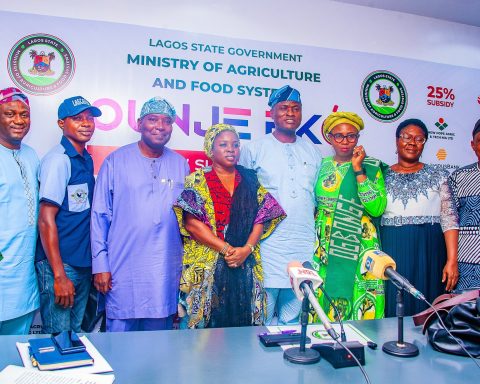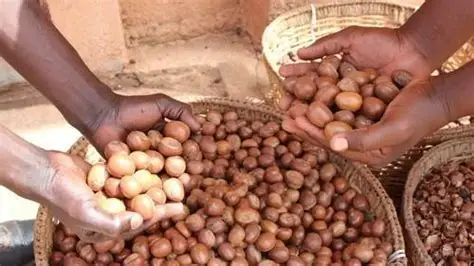From the moment a seed is sown to the food on our tables, agriculture follows a complex and often unseen journey. This is the agribusiness supply chain a vital system of interconnected activities and stakeholders that drives food production, influences prices, and shapes economies.
In Nigeria, where agriculture remains a cornerstone of livelihoods and national development, the supply chain is central to achieving food security, reducing waste, and boosting economic resilience. Yet, many of its links remain fragile from limited access to quality inputs, to inadequate infrastructure and inefficient logistics. Mapping and understanding this supply chain is critical to transforming Nigeria’s agricultural potential into sustainable outcomes.
Join our WhatsApp ChannelIt Starts with Seeds and Soil
The agricultural supply chain begins long before harvest, with the provision of essential inputs such as seeds and fertilizers.
High-quality seeds are developed through research and breeding programmes aimed at producing varieties that are more productive, resistant to pests, and adaptable to local climates. Once developed, seeds undergo certification to ensure their viability before being distributed to farmers through agro dealers and cooperatives.
Fertilizers, both synthetic and organic, are equally critical. However, Nigeria relies heavily on imported fertilizers and pesticides, often struggling with high prices, counterfeit products, and patchy distribution networks that leave smallholder farmers underserved.
Other vital inputs such as tractors, irrigation equipment, and veterinary products remain out of reach for many rural farmers due to cost and limited financing options.
The Heart of the Chain: Farming and Production
The core of the supply chain lies on the farm, where crops are planted and harvested, and livestock raised. In Nigeria, the majority of food production comes from small-scale farmers, many of whom still rely on rainfed agriculture, traditional tools, and limited access to modern techniques.
Low productivity, climate variability, and inadequate extension services continue to hamper growth at this stage. Even after a successful harvest, poor handling and storage methods can result in major losses up to 40 percent of crops in some estimates before they even leave the farm.
The Middle Mile: A Fragile Link
Once food leaves the farm, it must navigate the middle mile, a phase that includes processing, storage, and transportation.
In this critical phase, crops are cleaned, sorted, and sometimes processed into more durable forms. Grains may be milled into flour, fruits dried or juiced, and milk pasteurised. These value-adding processes not only preserve food but also create employment opportunities.
READ ALSO: Tips For Eating Healthy With Affordable Budget In Nigeria
From Farm To Table: Celebrating Local Ingredients In Nigerian Cooking
However, Nigeria’s infrastructure gaps pose a significant threat to this part of the chain. Many roads connecting rural farms to urban markets are poorly maintained. Cold storage facilities remain scarce, causing spoilage especially for perishable goods like fruits, vegetables, dairy, and meat. The result is high logistics costs and reduced earnings for both farmers and processors.
The Final Destination: Markets and Consumers
The final leg of the journey leads to the market, where food is sold to consumers through a variety of channels.
Nigeria’s food retail landscape is a mix of modern supermarkets, traditional open-air markets, and an emerging digital marketplace. While urban areas are seeing a rise in online grocery platforms and supermarkets, most rural and peri-urban communities still depend on informal markets.
Farmers often face challenges accessing markets due to lack of infrastructure, weak bargaining power, fluctuating prices, and limited information. Meanwhile, consumers contend with rising food costs and concerns over food quality and safety.
Why It Matters: Connecting the Dots
The agribusiness supply chain is not a straight line but a web of interlinked activities. A breakdown in any segment such as input supply, production, or transportation can disrupt the entire system, leading to scarcity, food inflation, and waste.
Experts say strengthening each link in this chain is essential for Nigeria to build a more resilient and productive agricultural sector.
The Way Forward
To unlock the potential of Nigeria’s agribusiness ecosystem, stakeholders are calling for:
• Infrastructure Investment: Improved roads, rural electrification, cold storage, and processing centres
• Digital Tools: Platforms that connect farmers directly to buyers, provide market information, and track logistics
• Capacity Building: Training farmers in climate-smart agriculture, postharvest handling, and agribusiness management
• Policy Reform: Supportive regulations, accessible financing, and incentives for local production and value addition
By viewing agriculture not just as farming, but as a system that spans science, logistics, trade, and consumption, Nigeria can begin to chart a path toward food sufficiency and economic growth.
As the country contends with a growing population, food inflation, and climate pressures, strengthening its agribusiness supply chain may be one of the most important steps toward feeding the future.
Amanze Chinonye is a Staff Correspondent at Prime Business Africa, a rising star in the literary world, weaving captivating stories that transport readers to the vibrant landscapes of Nigeria and the rest of Africa. With a unique voice that blends with the newspaper's tradition and style, Chinonye's writing is a masterful exploration of the human condition, delving into themes of identity, culture, and social justice. Through her words, Chinonye paints vivid portraits of everyday African life, from the bustling markets of Nigeria's Lagos to the quiet villages of South Africa's countryside . With a keen eye for detail and a deep understanding of the complexities of Nigerian society, Chinonye's writing is both a testament to the country's rich cultural heritage and a powerful call to action for a brighter future. As a writer, Chinonye is a true storyteller, using her dexterity to educate, inspire, and uplift readers around the world.










